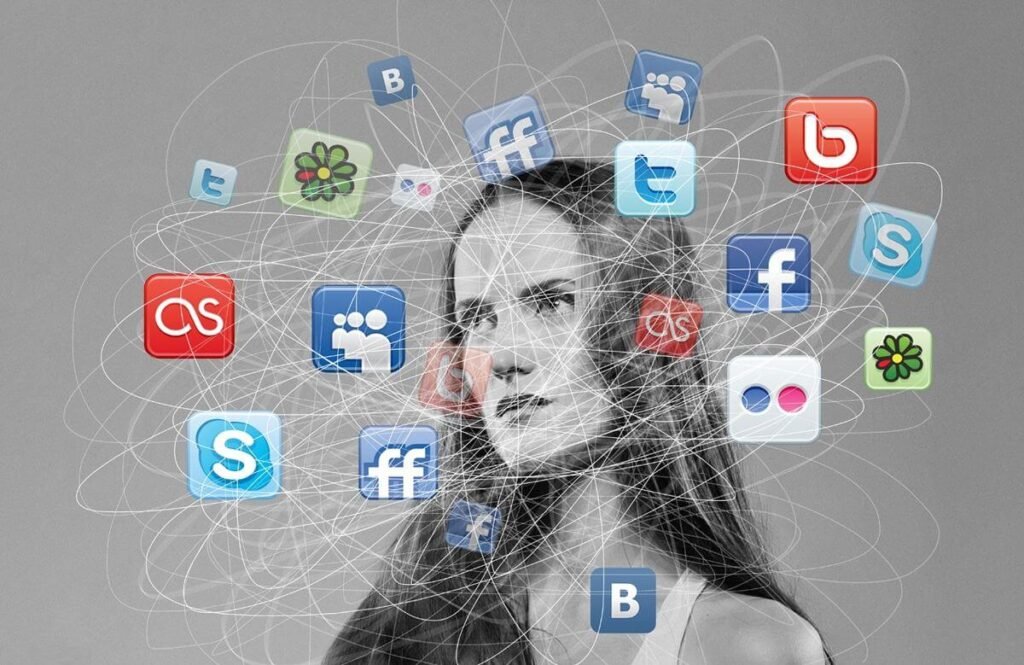Quick Summary
- However, its impact on mental health can be profound and multifaceted, leading to a growing concern about the psychological effects of these platforms.
- While individual strategies are important, recognizing when to seek support systems and professional help is also key to managing the mental health toll of social media.
- It’s important to remember that social media is a tool that we can use to our advantage, but it requires us to be proactive about our mental health in the digital realm.
In the digital age, social media has become a ubiquitous part of our daily lives, offering unprecedented opportunities for connection, learning, and entertainment. However, its impact on mental health can be profound and multifaceted, leading to a growing concern about the psychological effects of these platforms. This article examines the mental health implications of social media and offers strategies to foster digital well-being.
Chapter 1: The Psychology of Social Media – Connection vs. Isolation
Social media platforms are designed to connect people, yet research suggests that their use can lead to feelings of social isolation and loneliness. The paradox lies in the nature of online interactions and the quality of connections they foster.
Key Points:
- Superficial Interactions: Social media often promotes brief, low-quality interactions that can leave users feeling less satisfied than real-world relationships.
- Social Comparison: Constant exposure to curated highlights of others’ lives can lead to negative self-comparison and decreased self-esteem.
- Dopamine-Driven Feedback Loops: Social media can create addictive behaviors through the intermittent reinforcement of likes, comments, and shares.
Chapter 2: Recognizing the Signs – When Social Media Harms Mental Health
Understanding the signs of social media’s negative impact is crucial. These can manifest as emotional, psychological, or behavioral changes, often subtly.
Warning Signs:
- Mood Changes: Feelings of sadness, anxiety, or irritability after using social media.
- Decreased Productivity: Procrastination or neglect of responsibilities due to excessive time on social media.
- Sleep Disruption: Difficulty sleeping or altered sleep patterns because of late-night screen time.
Chapter 3: Establishing Healthy Habits – Moderation and Mindful Use
Moderation and mindful use of social media are key to maintaining mental wellness. This chapter offers strategies to help individuals balance their online and offline lives.
Strategies for Balance:
- Time Management: Set specific times for social media use and stick to them.
- Purposeful Engagement: Be intentional about why and how you use social media.
- Digital Detox: Regularly schedule time away from screens to reset and recharge.
Chapter 4: Social Media Literacy – Navigating the Digital Landscape
Developing social media literacy can empower users to interact with these platforms in a healthier, more critical manner.
Building Literacy:
- Critical Consumption: Question the authenticity and intent behind social media content.
- Privacy Awareness: Understand and manage privacy settings to control personal information.
- Positive Content Creation: Engage in sharing and promoting content that is positive and authentic.
Chapter 5: Support Systems and Professional Help – Beyond Self-Management
While individual strategies are important, recognizing when to seek support systems and professional help is also key to managing the mental health toll of social media.
Seeking Help:
- Community Support: Engage with online or offline groups that provide encouragement and understanding.
- Mental Health Resources: Utilize apps and websites that offer mental health support and resources.
- Professional Assistance: Consult mental health professionals when social media use is significantly impacting life.
Conclusion
Social media’s role in our lives is complex, with potential to both enrich and detract from our mental health. By recognizing its effects, adopting strategies for digital well-being, fostering media literacy, and seeking support when needed, we can take control of our digital lives. It’s important to remember that social media is a tool that we can use to our advantage, but it requires us to be proactive about our mental health in the digital realm. By doing so, we can enjoy the benefits of connectivity without sacrificing our psychological well-being.


